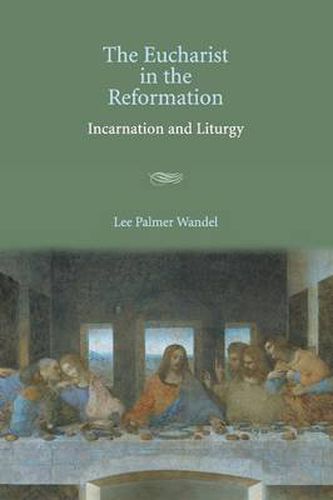Readings Newsletter
Become a Readings Member to make your shopping experience even easier.
Sign in or sign up for free!
You’re not far away from qualifying for FREE standard shipping within Australia
You’ve qualified for FREE standard shipping within Australia
The cart is loading…






The Eucharist in the Reformation: Incarnation and Liturgy takes up the words, ‘this is my body’, ‘this do’, and ‘remembrance of me’ that divided Christendom in the sixteenth century. It traces the different understandings of these simple words and the consequences of those divergent understandings in the delineation of the Lutheran, Reformed, and Catholic traditions: the different formulations of liturgy with their different conceptualizations of the cognitive and collective function of ritual; the different conceptualizations of the relationship between Christ and the living body of the faithful; the different articulations of the relationship between the world of matter and divinity; and the different epistemologies. It argues that the incarnation is at the center of the story of the Reformation and suggests how divergent religious identities were formed.
$9.00 standard shipping within Australia
FREE standard shipping within Australia for orders over $100.00
Express & International shipping calculated at checkout
The Eucharist in the Reformation: Incarnation and Liturgy takes up the words, ‘this is my body’, ‘this do’, and ‘remembrance of me’ that divided Christendom in the sixteenth century. It traces the different understandings of these simple words and the consequences of those divergent understandings in the delineation of the Lutheran, Reformed, and Catholic traditions: the different formulations of liturgy with their different conceptualizations of the cognitive and collective function of ritual; the different conceptualizations of the relationship between Christ and the living body of the faithful; the different articulations of the relationship between the world of matter and divinity; and the different epistemologies. It argues that the incarnation is at the center of the story of the Reformation and suggests how divergent religious identities were formed.